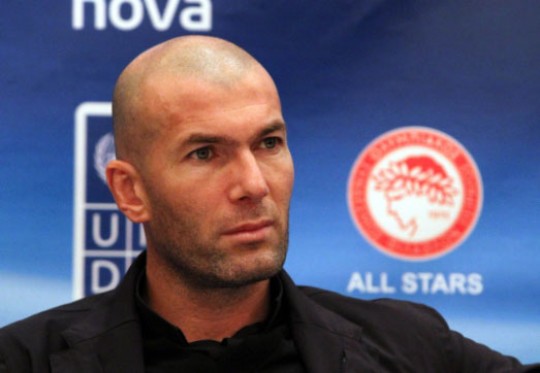UN Goodwill Ambassador Zidane to highlight anti-poverty successes in Mali
UN Goodwill Ambassador Zidane to highlight anti-poverty successes in Mali
13 October 2011

“Today I want to help,” said Zidane, who has been UNDP’s Goodwill Ambassador for 10 years. “Ending poverty takes each and every one of us. I, too, lived in difficult places where we had very little,” said the Frenchman, who retired from professional football in 2006 and is now Director of Sport for Real Madrid FC.
Zidane’s trip to the West African country, which will include visits to women’s and youth empowerment projects, as well as income-generating initiatives among some of Mali’s poorest populations, will coincide with the UN International Day for the Eradication of Poverty, which is marked on 17 October.
He will meet women in the Malian capital, Bamako, who are involved in a cooperative that makes shea butter products, as well as others who manage a multi-use engine that powers machines, including a grinding mill and battery charger, thus reducing the amount of time local women spend on household chores.
Mr. Zidane will also participate in a discussion with young people on the role they can play in community development and visit an environmental protection project that promotes sustainable farming techniques.
Mali has made significant progress in poverty reduction in recent years under the eight internationally-agreed Millennium Development Goals (MDGs), which include action against hunger, maternal and child deaths, disease, gender inequality and environmental degradation.
Primary school enrolment has risen from less than half of school-age children to over 90 per cent during the past decade, and more than 69 percent of Malians now have access to clean drinking water. Between 2001 and 2006, the HIV/AIDS prevalence rate dropped from 1.7 to 1.3 per cent.
Despite these achievements, challenges remain in nutrition, youth employment, sustainable development and maternal and child health.
“Zinédine Zidane’s visit to Mali is significant to draw attention to what is possible when different actors come together with a common goal,” said Maurice Dewulf, the acting UNDP Resident Representative in Mali. “It’s a global message of encouragement to all those who struggle daily against poverty.”
###
> United Nations (UN).
 The United Nations was established on 24 October 1945 by 51 countries committed to preserving peace through international cooperation and collective security. Today, nearly every nation in the world belongs to the UN: membership totals 192 countries.
The United Nations was established on 24 October 1945 by 51 countries committed to preserving peace through international cooperation and collective security. Today, nearly every nation in the world belongs to the UN: membership totals 192 countries.
When States become Members of the United Nations, they agree to accept the obligations of the UN Charter, an international treaty that sets out basic principles of international relations. According to the Charter, the UN has four purposes:
- to maintain international peace and security;
- to develop friendly relations among nations;
- to cooperate in solving international problems and in promoting respect for human rights;
- and to be a centre for harmonizing the actions of nations.
###
* The above story is adapted from materials provided by United Nations (UN)
** More information at United Nations (UN)




















